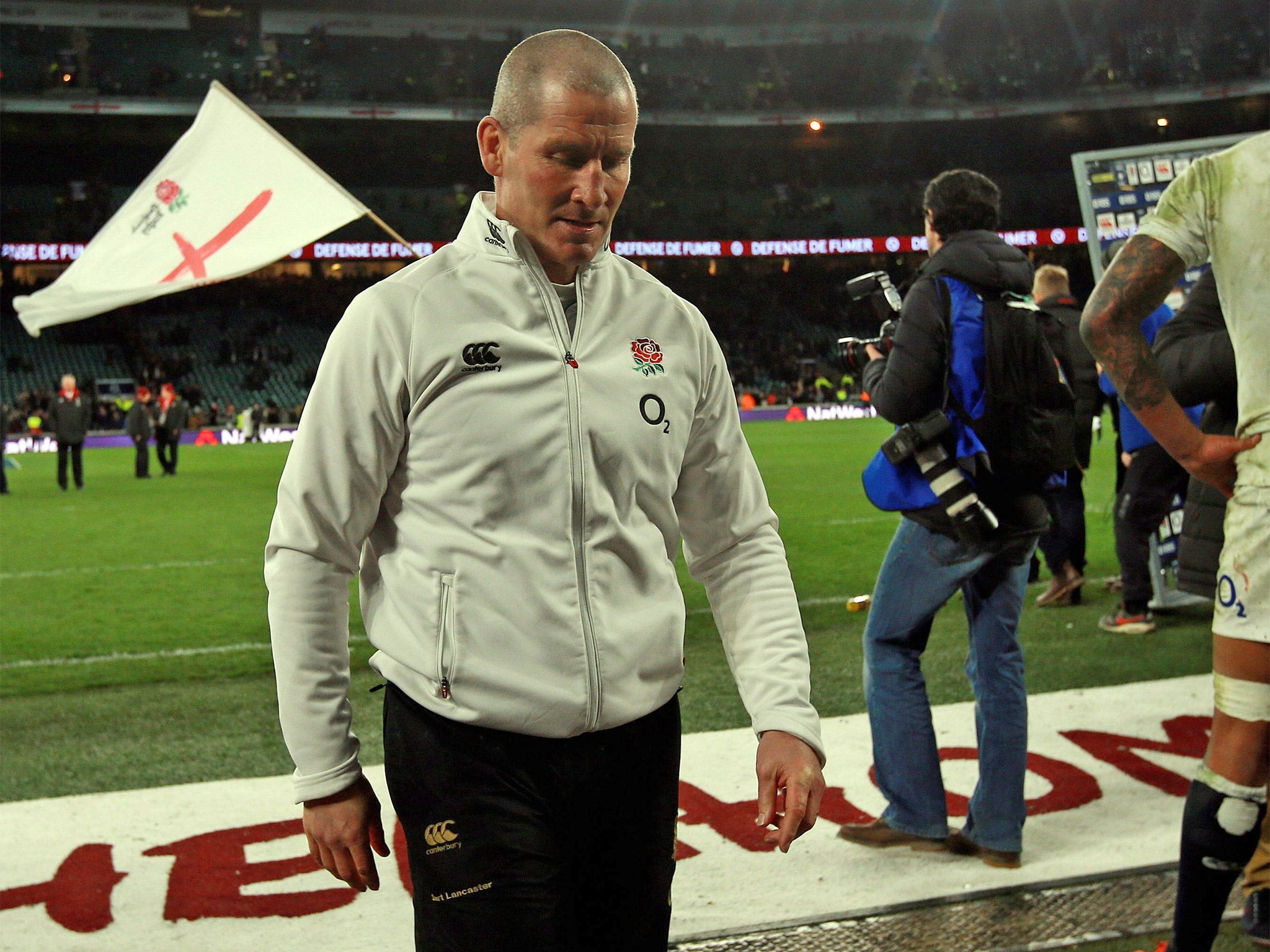Six Nations 2015: Not acceptable: RFU chief's stinging verdict on near-miss from Lancaster
Ritchie was unexpectedly sharp in his reaction to England’s fourth consecutive runner-up finish

Your support helps us to tell the story
From reproductive rights to climate change to Big Tech, The Independent is on the ground when the story is developing. Whether it's investigating the financials of Elon Musk's pro-Trump PAC or producing our latest documentary, 'The A Word', which shines a light on the American women fighting for reproductive rights, we know how important it is to parse out the facts from the messaging.
At such a critical moment in US history, we need reporters on the ground. Your donation allows us to keep sending journalists to speak to both sides of the story.
The Independent is trusted by Americans across the entire political spectrum. And unlike many other quality news outlets, we choose not to lock Americans out of our reporting and analysis with paywalls. We believe quality journalism should be available to everyone, paid for by those who can afford it.
Your support makes all the difference.Stuart Lancaster promised himself a few days’ solitary “thinking time” after having his emotions ransacked by the extraordinary finale to the Six Nations Championship at Twickenham on Saturday, but there is no escape for an England head coach in World Cup year.
He could be reviewing events on top of a mountain in wildest Tibet with only a yak for company and still have a burning sensation in both ears following yesterday’s comments by Ian Ritchie, the chief executive of the Rugby Football Union and the man to whom he owes his job.
Ritchie was unexpectedly sharp in his reaction to England’s fourth consecutive runner-up finish in the sport’s biggest annual tournament. “I think we would have expected to have won the title by now, so this is not acceptable at all,” he said. “Let us be clear: things were entirely within our control, but we didn’t do what we should have done.
“We did not take our chances and were not clever enough at certain times to deserve to win. There’s no point bleating about it: Ireland deserved their win because of what they did over the five matches. We did not do enough.”
While Ritchie re-emphasised his support for the England coaching team, all of whom signed long-term contract extensions last autumn, and declared himself confident that the side had the potential to prevail at the global gathering later this year, his choice of words was surprising.
England’s task on Saturday was at the extreme edge of what might be considered deliverable – they had to beat France by 26 clear points to relieve the Irish of their crown – and they came up only marginally short.
Yet the CEO is clearly of the view that England, awash with financial and playing resources when compared with most other leading nations, remain trapped in a cycle of Six Nations under-achievement.
“If you go back through history, we should as a country have won more in terms of Grand Slams and championships,” he remarked. “Have we missed some of our current targets? Yes. Targets are not the be all and end all and I believe the underlying situation is positive, but we’re not happy with another second place.”
Pressed on whether he thought the World Cup organisers were right to hold the draw for the tournament almost three years in advance – a decision that led directly to England, Australia and Wales being thrown together in a hellishly difficult pool – Ritchie diplomatically suggested that the system might bear further examination at some point in the future. “But I’m pragmatic about this,” he added, “because as far as this year is concerned, it’s a fact. It won’t cause me sleepless nights.”
He may, however, find himself laying awake in the small hours when the serious issue of promotion and relegation to and from the Premiership comes up for discussion. Several top-flight clubs, emboldened by a huge hike in broadcasting receipts due to come on stream in a couple of years’ time, want to expand the elite league from 12 teams to 14 – and then raise the drawbridge.
“To make such a change would be a big thing,” Ritchie said, in lukewarm tones. “We haven’t seen any formal proposal, so it’s not possible to have a rational discussion on the subject. As things stand, promotion and relegation is enshrined in our regulations and any possible move away from that will have to be considered in the round, not just on the basis of a business case put forward by the clubs. And no, it is certainly not a fait accompli.”
Join our commenting forum
Join thought-provoking conversations, follow other Independent readers and see their replies
Comments